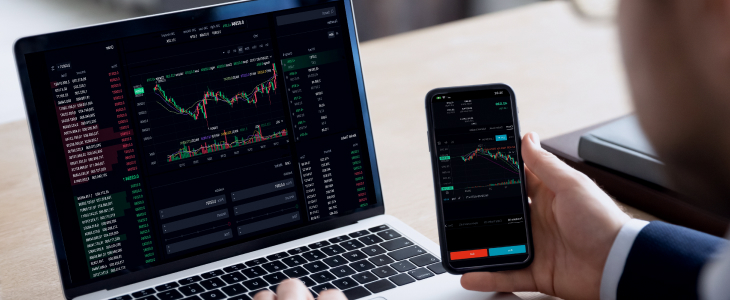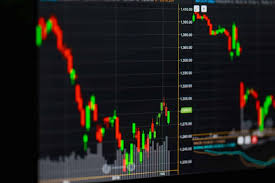Is Forex Trading Worth It A Comprehensive Analysis 1676699407
Rozpal Swoją Pasję Betonred – świat kasyna, live gier i sportowych emocji z niezrównanymi korzyściam
November 5, 2025Xareto 20 mg Vse, kar morate vedeti o zdravilu
November 5, 2025
Is Forex Trading Worth It? A Comprehensive Analysis
Forex trading, short for foreign exchange trading, has gained immense popularity over the last few decades. As the largest financial market in the world, with a daily trading volume exceeding $6 trillion, it promises lucrative opportunities for traders around the globe. Many individuals are intrigued by the potential to earn substantial profits in the Forex market. However, the question remains: is Forex trading worth it?
To navigate this complex landscape, it is crucial to consider various factors, including the market’s characteristics, risks, potential rewards, and the resources needed to thrive in this competitive environment. If you are in Nigeria, you might want to consider platforms offered by is forex trading worth it Nigeria Brokers for your trading needs.
Understanding Forex Trading
Forex trading involves the exchange of currencies on the foreign exchange market. Traders buy and sell currency pairs, predicting the future movements in exchange rates. For example, a trader might buy the EUR/USD currency pair if they believe that the Euro will strengthen against the US dollar. Conversely, they might sell the same pair if they anticipate a decline in the Euro’s value.
The Pros of Forex Trading
1. High Liquidity
One of the most significant advantages of Forex trading is its high liquidity. This liquidity ensures that traders can execute their trades quickly without experiencing substantial price changes. The ability to enter and exit positions with ease provides traders with greater flexibility and control over their investments.
2. Accessibility
Forex trading is accessible to anyone with an internet connection. Unlike stock markets, which may require a minimum investment amount, Forex trading can begin with relatively low capital. This accessibility appeals to both novice and experienced traders alike, allowing everyone to participate.
3. Leverage Opportunities
Another appealing aspect of Forex trading is the potential for leverage. Traders can control large positions with a small amount of capital, thereby amplifying their potential profits. However, it is crucial to use leverage responsibly, as it can also magnify losses.
4. Diverse Trading Options
The Forex market offers a wide range of currency pairs, allowing traders to diversify their portfolios. Traders can take advantage of various economic factors and geopolitical events that influence currency values, giving them multiple trading opportunities.
The Cons of Forex Trading
1. High Risk
While Forex trading offers potential for high profits, it also comes with considerable risks. Currency prices can be extremely volatile, with rapid fluctuations leading to significant losses. It is essential for traders to understand their risk tolerance and implement proper risk management strategies.
2. Complexity of the Market
The Forex market is influenced by numerous factors, including economic data, political events, and market sentiment. As a result, understanding the market can be quite complex. New traders often struggle to navigate these complexities, which can be overwhelming and lead to poor decision-making.
3. Emotional Trading
Forex trading can evoke strong emotions, especially when significant amounts of money are at stake. Fear and greed can cloud judgment, leading traders to make impulsive decisions. Successful Forex traders need to develop emotional discipline to adhere to their trading plans and avoid emotional trading.
4. This Market is 24/5
The Forex market operates 24 hours a day, five days a week, which means traders need to be available to monitor their positions continuously. This can be demanding, particularly for those who have other commitments, such as work or family obligations.
Is Forex Trading Worth It?
Ultimately, whether Forex trading is worth it depends on individual circumstances, goals, and risk tolerance. For some, the potential for profit and the allure of being part of a dynamic financial market can be highly rewarding. For others, the risks and complexities may outweigh the benefits.

Factors to Consider Before Trading
1. Education and Training
Investing time in education and training is vital for anyone considering Forex trading. Understanding how the market works, technical analysis, and the impact of economic indicators can significantly enhance trading performance. Many online resources, webinars, and courses are available to help traders build their knowledge.
2. Trading Plan
A well-defined trading plan is essential for success in Forex trading. This plan should outline goals, trading strategies, risk management techniques, and criteria for entering and exiting trades. Following a trading plan can help traders remain disciplined and systematic, reducing the emotional aspects of trading.
3. Choosing the Right Broker
Selecting a reputable Forex broker is crucial. Traders should look for brokers that are regulated, have a good track record, and offer user-friendly trading platforms. In Nigeria, for example, choosing local brokers can provide specific information tailored to the Nigerian market.
4. Practice with a Demo Account
Most brokers offer demo accounts, allowing traders to practice their strategies without risking real money. Using a demo account can help build confidence and test trading techniques in a risk-free environment before committing to live trades.
Conclusion
In conclusion, Forex trading can be worth it for individuals who are willing to put in the time and effort required to educate themselves, develop a solid trading plan, and manage their risks effectively. While the potential rewards are enticing, the risks involved necessitate a careful and informed approach.
As always, potential traders should conduct thorough research and seek guidance from experienced professionals in the field. With the right mindset and strategy, Forex trading can offer a rewarding venture that provides not only financial gains but also valuable experience in the financial markets.
